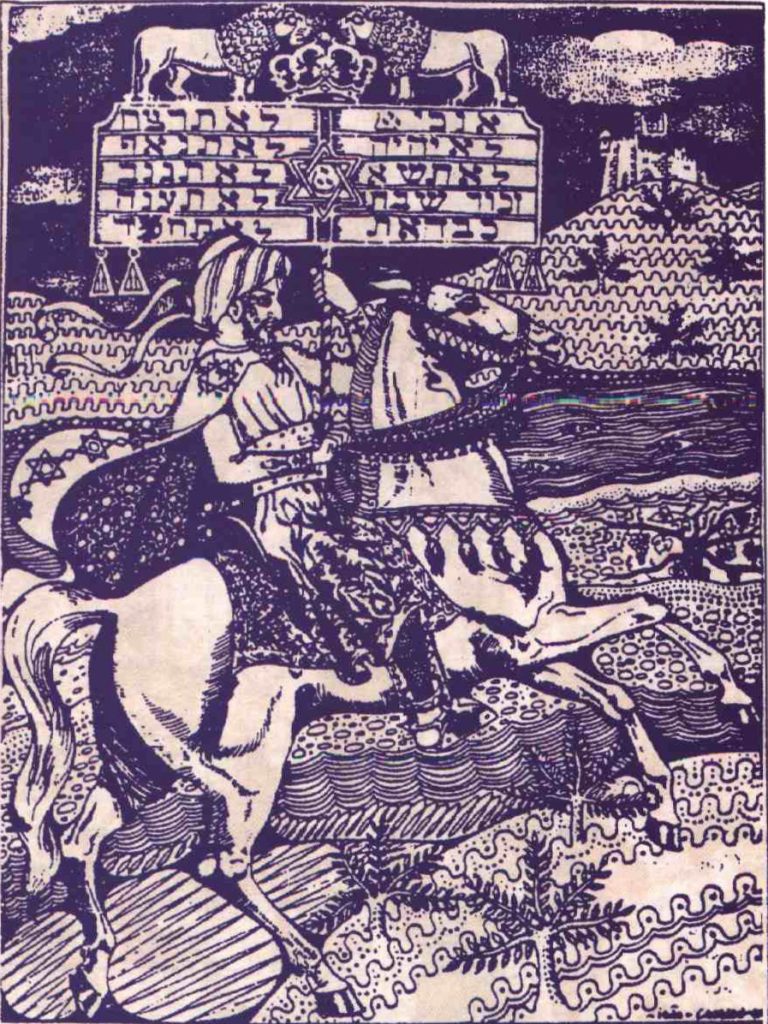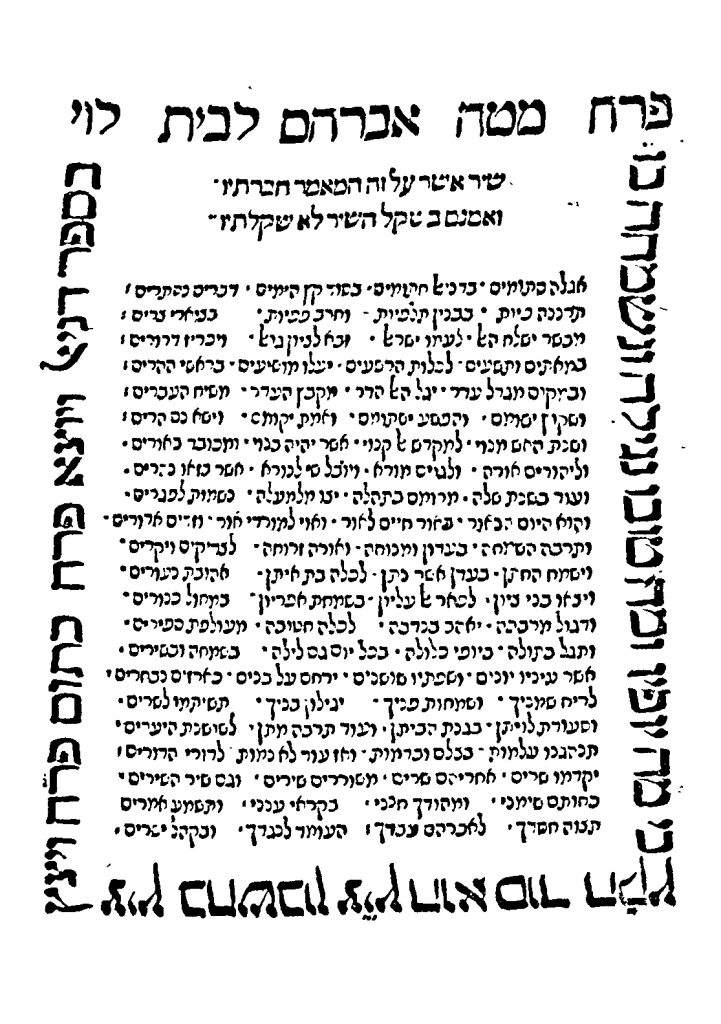David Ha-Reuveni arrived in Venice outlandishly dressed in “striped silk according to the Ishmaelite custom” and “a white scarf, with which he covered his head and most of himself” (Letters of Daniel of Pisa, quoted in Umberto Cassuto, “Sulla famiglia da Pisa,” in Rivista Israelitica, VII [1910], pp. 79–80). The true origins of this intriguing figure have prompted over two hundred years of research and speculation. Ha-Reuveni left a detailed journal of his purported travels and exploits (and expenses) – beginning with his departure from brother Joseph’s Jewish kingdom, in the Arabian desert of Habor, and ending with his capture by the lord of Clermont after his expulsion from Portugal in the summer of 1526 (the diary has him leaving Portugal only in 1527, but that’s not its only inaccuracy).
The Venetian Jewish community noted that the swarthy stranger had arrived unaccompanied on a merchant vessel and requested charity, as all his wealth had been lost along the way. Eager to be rid of him, Venice’s Jews paid his debts and helped him travel on to Rome, where he made a proposal to Pope Clement VII. The translator at those meetings, an Italian Jew named Daniel of Pisa, described the proposition:
This David was sent from Habor Desert, from the three hundred thousand people of Israel there, to make a treaty with the pope. And to ask him for weapons, such as corteti and falconeti fire-throwers [i.e., cannons] and the like, [to be delivered] by the king of Portugal to a port named Jeddah, which is about a three-day journey to their [the Jews’] country, ten days at most. (Elkan Nathan Adler, Jewish Travellers [London: G. Routledge & Sons, 1930], p. 276)
What did Ha-Reuveni want with a Portuguese battleship? What could he do with just one such vessel, even if it survived its long and dangerous voyage along a newly discovered route?
Messenger from the fabled country of the lost tribes of Israel, or deluded messianist?
Whatever his plan, it went unfulfilled. Ha-Reuveni was expelled from Portugal despite the pope’s recommendation. He then wandered or was imprisoned in France, resurfacing in Italy early in 1530. He was caught forging documents in Mantua, and by November he was in Venice, where Solomon Molkho joined him. They set out on their disastrous mission to Charles V in Regensburg in August 1532, after which Molkho was executed and Ha-Reuveni remained in custody until he was burned, apparently in an auto-da-fé in Llerena, Spain, in 1538.
Ha-Reuveni’s diary was discovered in 1848, when it was purchased by the Bodlean Library in Oxford, only to be mislaid somehow in 1867. All subsequent research has been based on a facsimile made in the interim. In the 1990s, a reference to Ha-Reuveni’s file was found among the records of the Spanish Inquisition in Madrid, but the folder is missing. As a result, many details of his story remain unclear and unverifiable.
Ha-Reuveni was obviously a master of manipulation, so any document he produced (and especially any copy) is suspect. Yet his diary indicates familiarity with much of the Holy Land. Customs he mentions reflect the practices of conversos who returned to their ancestral faith and wished to atone for their previous existence as Christians. This testimony, together with his fluency in Arabic and his swarthy appearance, implies that Ha-Reuveni may well have been neither Indian nor Ethiopian nor Yemenite – as has been suggested – but a member of the community of Arabic-speaking Jews who lived for generations in the northern Holy Land. Alternatively, he may have been among the many Spanish and Portuguese exiles who gathered in Jerusalem and the Galilee. Letters sent from the kabbalistic community in Safed in the 1520s describe a personality strikingly similar to him.
Perhaps the keys to Ha-Reuveni’s request of a warship and Molkho’s offer to help Charles V battle the Ottomans are one and the same – the writings of Jerusalem kabbalist Rabbi Abraham son of Eliezer Halevi. Expelled from Spain, Halevi had taken refuge in Portugal, only to be forced into Christianity along with all his coreligionists. In 1506, he fled Portugal for Italy, then proceeded through Greece and Egypt, settling finally in Jerusalem. There he produced a series of manuscripts (in 1508, 1517, and 1519) calculating the date of the redemption and lending messianic interpretations to such contemporary events as the Ottoman advances, the rise of Martin Luther, and the arousal of Christian interest in Hebrew and in sacred Jewish literature. According to Halevi, the years 1524 and 1530 were both charged with eschatological significance. His works generated widespread interest in Europe, particularly Italy. Tellingly, those few Italian Jews associated with David Ha-Reuveni all corresponded with the Jerusalem kabbalist.
The tribes of Reuben and Gad figure prominently in Halevi’s writings, as does the Arabian port of Jeddah (which he connects with Gad). Possibly, David Ha-Reuveni was familiar with these tracts and set out to bring about the events described by Halevi as precursors to the redemption: namely, a battle in Arabia between Christians and Muslims, in which a port near Mecca would be captured. This theory would explain Ha-Reuveni’s request of John III of Portugal. The former’s collaboration with Solomon Molkho would also have been intended to unleash Armageddon in the form of a war between a Christian coalition and the Ottoman Empire.


